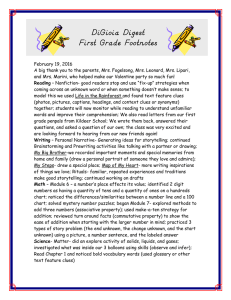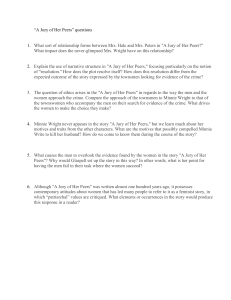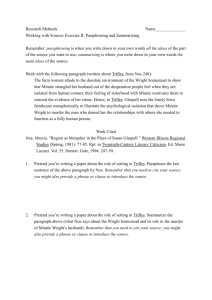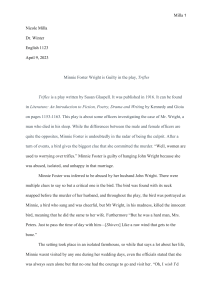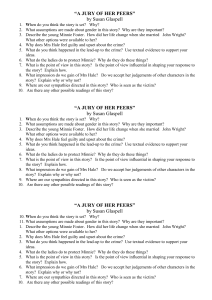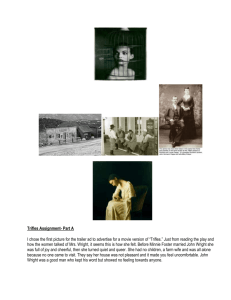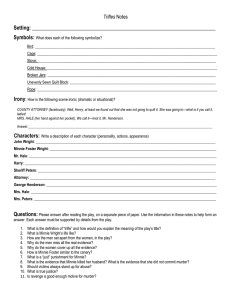"A Jury of Her Peers" Discussion Questions
advertisement
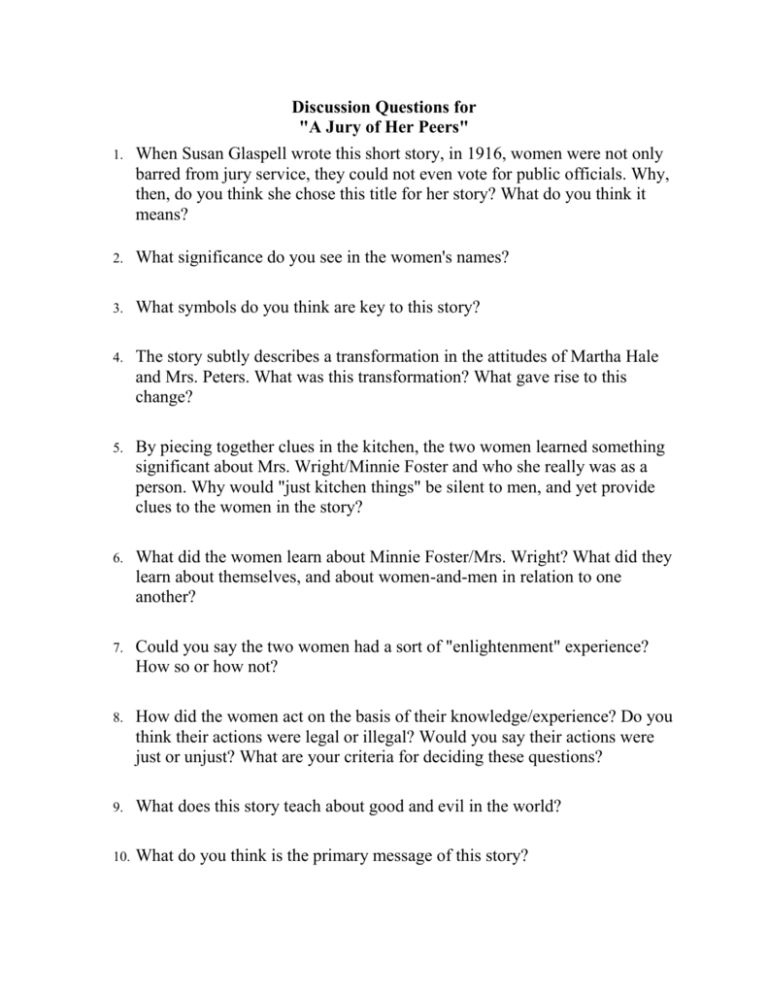
1. Discussion Questions for "A Jury of Her Peers" When Susan Glaspell wrote this short story, in 1916, women were not only barred from jury service, they could not even vote for public officials. Why, then, do you think she chose this title for her story? What do you think it means? 2. What significance do you see in the women's names? 3. What symbols do you think are key to this story? 4. The story subtly describes a transformation in the attitudes of Martha Hale and Mrs. Peters. What was this transformation? What gave rise to this change? 5. By piecing together clues in the kitchen, the two women learned something significant about Mrs. Wright/Minnie Foster and who she really was as a person. Why would "just kitchen things" be silent to men, and yet provide clues to the women in the story? 6. What did the women learn about Minnie Foster/Mrs. Wright? What did they learn about themselves, and about women-and-men in relation to one another? 7. Could you say the two women had a sort of "enlightenment" experience? How so or how not? 8. How did the women act on the basis of their knowledge/experience? Do you think their actions were legal or illegal? Would you say their actions were just or unjust? What are your criteria for deciding these questions? 9. What does this story teach about good and evil in the world? 10. What do you think is the primary message of this story?

